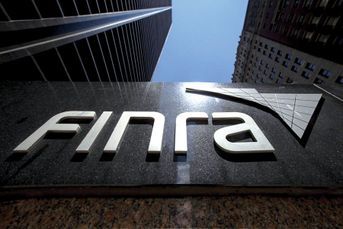Linsco makes a move to other side of ledger
A leading broker-dealer known for its dedication to independent financial advice has jumped into the lucrative managed-money business.
A leading broker-dealer known for its dedication to independent financial advice has jumped into the lucrative managed-money business.
Linsco/Private Ledger Corp. of San Diego and Boston last week launched the accounts and has the green light from NASD to consult with a manager of a new series of funds. And Linsco is also garnering the fee for record keeping and other services for shareholders.
In turn, the money manager running the funds will pay Linsco/Private Ledger a fee of 0.4% to 0.5% of net asset value, according to a recent letter from NASD to a lawyer with the firm.
Independent broker-dealers often cite the fact that they don’t sell proprietary products such as mutual funds, separately managed or wrap accounts, and funds of funds as proof of no conflict of interest when giving clients investment advice.
But some brokerage executives question how the new series of funds, the Optimum Market Portfolio, can be viewed as anything other than proprietary when Linsco earns a fee for selling them.
At issue is the potential for conflicts of interest, says Eric Schwartz, president and CEO of Cambridge Investment Research Inc., an independent broker-dealer in Fairfield, Iowa.
The key point is who is making money on the investment product, not who is managing it, Mr. Schwartz says. “When I think of the term `proprietary,’ the key factor is substantial extra compensation going to broker-dealers and reps,” he says.
“It’s not critical who manages the fund, but it’s the extra compensation that counts,” adds Mr. Schwartz, who regards Linsco as a leader in the independent-broker-dealer industry.
Linsco’s research department will give advice about the roster of subadvisers and provide consultation to the fund manager, Delaware Investments, a unit of Lincoln National Corp. in Philadelphia.
Linsco’s research department already gives advice to its brokers and advisers in its SAM Account. The difference with the new program is that brokers and advisers ultimately make the investment decisions, not outside fund managers.
The new offering is by no means proprietary, executives at Linsco say.
“It’s a mini-SAM,” says Mark S. Casady, Linsco president. “It’s the same concept as SAM, plus technology.” He adds that brokers and advisers will gain from having a much smaller group of funds from which to choose: nine rather than 3,000. They will also gain from tools to re-balance accounts.
Discussions between Linsco and NASD over the word “proprietary” spanned six months. In the end, regulators concluded that the product wasn’t proprietary, because Linsco didn’t underwrite or issue it.
And Linsco’s research staff gives no direct advice to the fund manager but instead acts as a consultant.
Mr. Casady equates the question raised about whether the Optimum Market Portfolio is proprietary to the debate that ensued when Linsco first introduced the SAM (strategic asset management) accounts in 1991.
In its letter, NASD pointed to the question of whether the new product is proprietary. “We concur that LPL’s statement – that it does not sell any proprietary investment product – would not be misleading” concerning the funds, it stated.
Still, NASD left the door slightly open for Linsco to take on additional responsibility with the funds.
“Should LPL’s role change, or should LPL take on additional roles with regard to the funds, NASD staff would be required to reconsider this conclusion,” according to the letter, written by Joseph P. Savage, counsel for investment companies regulation.
Linsco will be advertising the fees, stated the letter, which was written at the end of May. Linsco can also maintain that it doesn’t sell proprietary products, but it must tread carefully, the letter said.
“You have represented that all communications with the public concerning the funds that may be viewed by current or prospective LPL clients (including advertisements, sales literature and correspondence) would prominently disclose that LPL receives consulting and subadministrative fees,” Mr. Savage wrote.
“To the extent that any LPL communication with the public regarding the funds states that LPL does not offer any proprietary products, the disclosures regarding LPL’s relationships with the funds will be in close proximity to this statement.”
In its exchange with NASD, Linsco is keenly aware of the importance of the word “proprietary.” The firm raised the question of what exactly is a proprietary product, said Mr. Savage, pointing out that the term has no clear definition.
Linsco “observes that neither the NASD rules nor the federal securities laws define the word `proprietary.’ However, you contend that this term commonly refers to something of or relating to a proprietor, or owner, that runs a business,” the letter states.
Linsco “argues that the [money manager] is the entity most closely associated with operating the business in the present case, rather than LPL.”
Learn more about reprints and licensing for this article.








